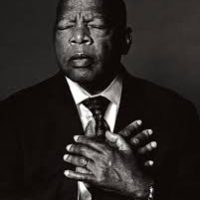This is the season of holiday songs. There are certain radio stations here in the Bay Area that have played nothing but holiday songs for weeks now.
What is your favorite Christmas song – or carol? That may be a tough question – I have to think hard about it, there are so many carols I love. But I have to say that no Christmas for me would be complete without singing ‘O du fröhliche’, a German carol that just bursts with joy.
Another question: what is your least favorite song of the season? A song you just can’t stand? I think there are quite a few candidates on the airwaves right now.
Well, let me disclose the one song I can’t stand, that makes me bristle. And it may surprise you, because it is an American Christian favorite. It may even be one of YOUR favorite songs of the season. It’s ‘Mary did you know?’
In case you don’t know this song, it repeatedly asks, ‘Mary, did you know?’ Mary, did you know that this child you are carrying will perform miracles and become your Savior, even the Savior of the world?
Now don’t get me wrong: I am all for Mary, I think female voices are underrepresented in the Bible, and in the church – especially the Protestant church – , and so I eagerly wait each year for the Advent season to hear those stories surrounding Mary. The ‘Magnificat’, Mary’s song of praise as she carries the child of God in her womb, which we heard last Sunday, is one of my favorite passages of the Bible.
But ‘Mary, did you know?’ just rubs me the wrong way. Because this song, as I hear it, doesn’t give Mary enough credit for her immense courage to bear and give birth to her child – and the child of God.
And I can imagine Mary listening to all the questions in this song, giving the singer a side glance, and breaking into her song for a very clear answer: ‘My soul magnifies my Lord, and my spirit rejoices in God, my Savior, for…the Mighty One has done great things for me, and holy is his name. He has brought down the powerful from their thrones, and lifted up the lowly; he has filled the hungry with good things, and sent the rich away empty…
Mary is not naïve. Mary knows. And this already becomes very clear in today’s gospel, the passage we know as the ‘annunciation’. The angel Gabriel comes to Mary, a young, unwed woman, and announces to her that God chooses her to bear God’s son.
Now throughout art history, many painters tried to capture this moment. And for the most part, we see Mary depicted as meek and mild, her arms chastely crossed in front of her chest, demurely accepting her fate. And these depictions may have influenced how we imagine this scene; we may be thinking of Mary as a passive and malleable vessel of God’s mysterious plan.
But this is not how the story goes down. Mary, confronted with this heavenly messenger, still keeps her wits about her – and even has the courage to challenge the angel, ‘How can this be, since I’ve not slept with a man? Biologically, it’s impossible!’
I want to talk about a couple of my personal favorite images of this moment; the first one by 19th century painter Henry Tanner. In this picture, Mary looks quite skeptical. To me, this picture seems to capture the moment Mary asks, ‘How can this be?’
Another picture I like is by early 20th century painter John William Waterhouse In this picture, Mary looks aghast, almost as if she was saying, ‘Oh dear!’
And in a picture by 19th century artist Dante Rossetti, Mary stares, not at the angel, but at the lily, which is a common symbol in art for Mary’s purity and fertility, like a rabbit at the snake. One can sense Mary’s reluctance in this image.
Mary knows: God business is serious business. It will disrupt her life and turn it upside down. Sacrifices will be demanded of her. She will offend people by doing God’s will.
How does she know? Well, the Scriptures we call the Old Testament are full of those who follow God’s call – and who consequently have to endure ridicule, derision, and even violence. Many of the prophets like Moses, Isaiah, Jeremiah, and, most prominently, Jonah, are reluctant at first when they receive God’s call. ‘Why me? Who am I to tell the pharaoh what to?’ ‘Oh Lord, I am but a man with unclean lips, not worthy to prophesy in your name!’ ‘But, but, God, I am too young!’ ‘God, are you crazy? I’m not going to Niniveh! They’re going to kill me!’
Mary stands in the tradition of these and other prophets who hesitate at first, who have questions, objections – because they know exactly what’s in store for them. The word of God is uncomfortable to many and a serious threat to some. Who wants to listen to it?
Now imagine giving birth to the Word…
But, like the prophets, Mary eventually comes around. There is this Hebrew word that sounds funny to our ears and that is used in all of the stories that talk about the calling of God’s servants: hinneni. But this word is anything but funny or flippant. It shows resolve. It means, ‘Here I am.’ Here I am. God, I know it’s not going to be easy, it’s going to be challenging, I will be challenged – but I am in.
Mary, after a moment of serious consideration, says: hinneni. Here I am. Let it be with me according to your word. This is not a meek, mild and passive voice. This is a voice of fierce resolve. Mary, did you know? Duh!
Now do we know what we have gotten ourselves into as those who follow the call of God? Do we know that as those who are called to constantly birth the Word of God here and today in a world that is East of Eden we have to expect to have our lives be disrupted and turned upside down? Do we know that sacrifices are required of us – and it may be a sacrifice as simple as wearing a mask during this pandemic to protect others? Do we know that we will offend people and meet opposition because God’s Word makes uncomfortable and even threatens the idols of this world that are worshiped without question – and those who follow them?
To anticipate Christ’s birth is so much more than to look forward to seeing the babe in the manger and to pretend that all is calm, all is bright. To anticipate Christ’s coming into our hearts, our wombs, our lives requires our fierce resolve to say, ‘Hinneni. Here I am. God, I know it’s not always going to be easy, I know it’s going to be challenging, I know I will be challenged – but I am in. Let it be with me according to your word.’
This post is also available in: German






